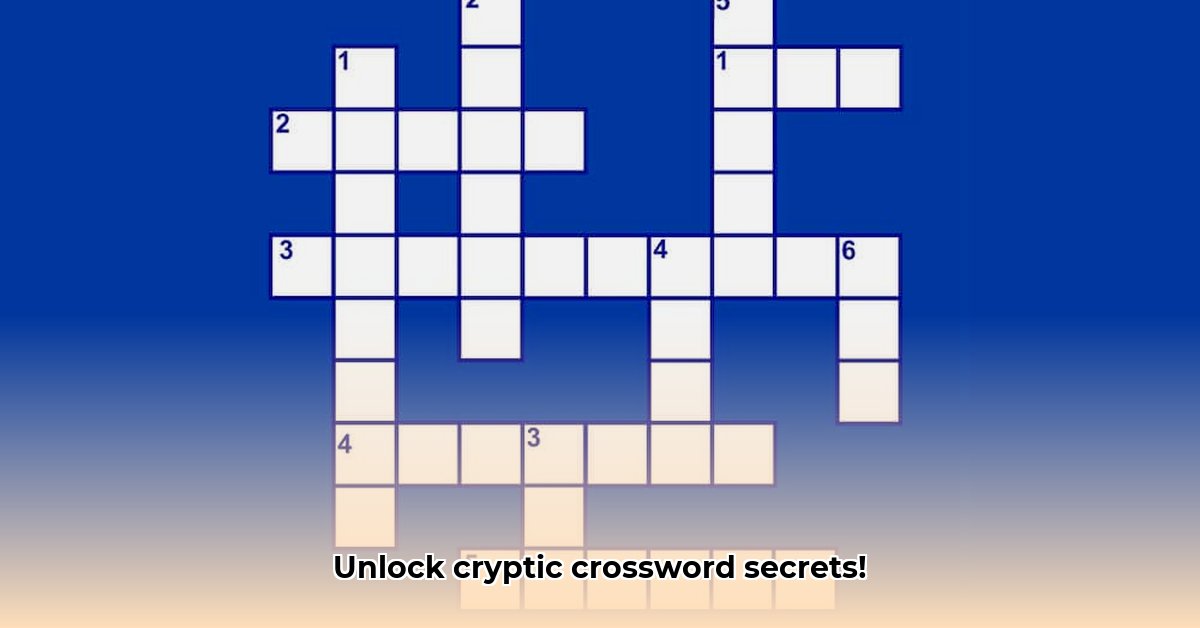Struggling with crossword clues related to “ghost”? You’re not alone! The word “ghost” presents a unique challenge due to its multiple meanings and subtle disguises within a puzzle’s grid. For even more tips and tricks, check out this helpful guide on ghost crossword clues. This comprehensive guide provides advanced strategies to conquer these spectral clues, regardless of your current skill level. We’ll explore the complexities of “ghost” clues, dissect effective solving techniques, and offer a structured approach to mastery. Prepare to transform into a “ghost” clue expert and eliminate puzzle-solving frustration.
Decoding the Art of Crossword Clue Interpretation
Crossword puzzles offer invaluable mental exercise, yet certain clues appear deliberately cryptic. The word “ghost,” in particular, excels at deception, manifesting in diverse forms from “specter” to a metaphorical presence. Success isn’t merely about synonym recall; it demands decoding subtle linguistic nuances within the crossword’s framework. Let’s uncover the secrets to effectively solving those tricky “ghost” clues.
Revealing the Multifaceted Nature of “Ghost”
“Ghost” is far from a one-dimensional word. It’s a linguistic chameleon, adapting its meaning based on context. Sometimes, it appears as a straightforward synonym like “specter,” fitting shorter grid spaces. At other times, it transforms into a more elaborate term synonymous with shadow, illusion, or imitation.
This variability makes “ghost” clues both challenging and rewarding. A brief hint like “shade” differs significantly from “disembodied spirit.” This difference in length fundamentally alters your solving approach. The beauty of this ambiguity keeps puzzles engaging, demanding a flexible and insightful solver.
Maximizing Digital Resources: Exploring Extensive Crossword Databases
Given the multifaceted nature of “ghost,” relying on a single online crossword solver can be limiting. Each solver uses a unique database, directly impacting results. It’s like comparing dictionaries; one might list a specific synonym absent in another. Construct a comprehensive view of potential answers, not just seeking a single meaning. Consulting multiple online tools casts a wider net, increasing the probability of finding the perfect solution. Consulting multiple databases may significantly increase your success rate.
Evaluate length, context, and available letters carefully for optimal results.
Strategic Approach: Mastering the “Ghost” Clue Code
How can you systematically approach challenging “ghost” clues? Here’s a step-by-step process:
- Context is Key: Analyze surrounding clues thoroughly before entering answers. Seek intersecting letters to narrow possibilities. A short answer won’t fit a long space!
- Length Matters: The number of letters is the primary constraint. Solving a short answer (4-5 letters) is simpler than a long one (10+ letters). Short answers often suggest common synonyms; longer answers may require obscure terms.
- Cross-Reference Extensively: Use multiple crossword clue solver websites and apps. Compare results to broaden your perspective; different databases offer varied solutions.
- Practice Makes Perfect: Experience is a powerful tool against “ghost” clues. Solving more puzzles improves your ability to recognize patterns and associations between clues and answers.
- Embrace Ambiguity: Some clues may have multiple valid answers, depending on the constructor’s intent. Don’t be discouraged if you can’t find a single definitive answer; consider which answer integrates best into the complete puzzle.
Perspective Shift: Constructing Tricky Crossword Clues
Crafting a challenging “ghost” clue is also an art. Here’s a look into a constructor’s mindset:
- Specificity is Key: Avoid vague language. Use detailed descriptions to help solvers narrow possibilities. Instead of “a ghostly figure,” use “a spectral, translucent being.” Greater specificity reduces ambiguity.
- Letter Count Matters: The required number of letters is vital. Choose a word length that allows for a demanding yet solvable clue, creating a stimulating, fair puzzle.
Weighing Strategy Options: Pros and Cons
| Approach | Pros | Cons |
|---|---|---|
| Multiple Online Tools | Expands solution options; Increases possibility of finding the right answer. | Time-consuming; May reveal inconsistencies between databases. |
| Contextual Clue Analysis | Narrows potential answers; Enhances accuracy. | Requires comprehension; Demands experience. |
| Combining Multiple Strategies | Integrates approaches for a comprehensive strategy. | May require more time/effort, but enhances the possibility of success. |
Continuous Pursuit: “Ghost” Clues and Beyond
Mastering “ghost” clues involves developing a refined process and understanding puzzle fundamentals. As the crossword world evolves, so will our understanding and strategies for solving “ghost” clues.
Selecting the Optimum Crossword Clue Answer for Ghost
Core Insights:
- The “ghost” clue is ambiguous, allowing valid responses.
- Comprehending crossword construction nuances is important for choosing the best answer.
- Consider word length, synonyms, and puzzle complexity.
- Online crossword solvers can assist, but verification is important.
- Practice fine-tunes your skill in choosing the best solution.
Defining Ambiguity
“Ghost” is a tricky clue. Unlike straightforward clues, “ghost” includes synonyms. How do we choose the best answer?
Analyzing Answers
Factors influence the solution, including letter count. A five-letter solution could be “SHADE,” while a nine-letter answer might be “APPARITION.” However, the count doesn’t guarantee a unique answer! Context matters, too, such as is it a themed puzzle? Is the difficulty common or uncommon?
Crossword types also matter. Cryptic crosswords use wordplay, while classic crosswords prefer synonyms.
Using Online Resources
Online solvers can help, but don’t blindly trust the first result. Different solvers use different algorithms. Treat suggestions as starting points, and cross-reference solutions across multiple websites.
Strategies
How can we improve our approach to ghost clues?
- Determine the letter count to narrow the possibilities.
- Consider common synonyms like “PHANTOM,” “SHADOW,” and “SPECTER.”
- Analyze the puzzle context, including its theme.
- Use online solvers as a source, checking multiple sites.
- Prioritize common synonyms when unsure.
Constructor’s Perspective
Creating a good clue needs a balance between ambiguity and clarity. Satisfaction without frustration is key.
Ghost Crossword Clues: The Crucial Role of Length
Core Insights:
- Clue length affects solving strategies for “ghost” clues.
- Longer clues suggest less common words or phrases.
- Database size affects success with obscure answers.
- Analyzing word length pinpoints solutions within online solvers.
Understanding “Ghost”
What’s a “ghost” clue? It stems from subtle wordplay or phrases. Length matters, as short clues point to short answers and longer clues suggest less familiar words.
Online Solver Value
If you find a five-letter “ghost” clue: Use the letter count as a filter in your solver to narrow possibilities. Use more than one solver!
Length as a Filter
- Short Clues (3-5 letters): Common, everyday words.
- Medium Clues (6-9 letters): Synonyms and related terms.
- Long Clues (10+ letters): Creative solutions with less common words or phrases.
Refining
You’ve filtered by length; is it a definition or riddle? Use these insights in your solver.
Case Study
Imagine “Spectral being,” a five-letter “ghost” clue. We’re looking for a five-letter word. Using the solver’s search focusing on word length will reduce options and help solve it. With a larger database, that solver will be more likely to give the answer, “WRAITH.”
- Good Morning Images to Share with Loved Ones - January 10, 2026
- Handsome Good Morning Message for Him Long Distance to Make Him Smile - January 9, 2026
- Find the Perfect Good Morning Handsome Gif for Him - January 8, 2026










